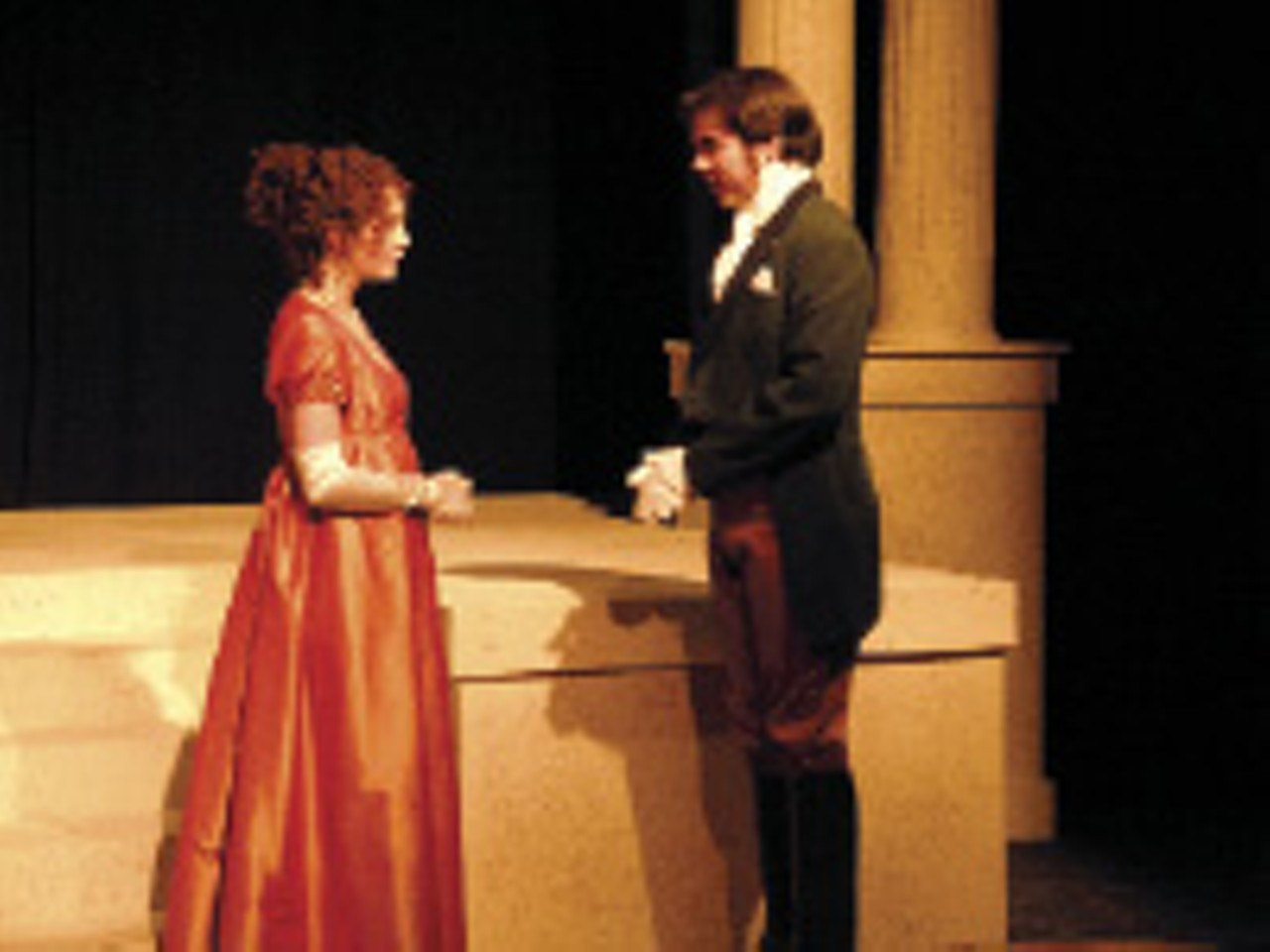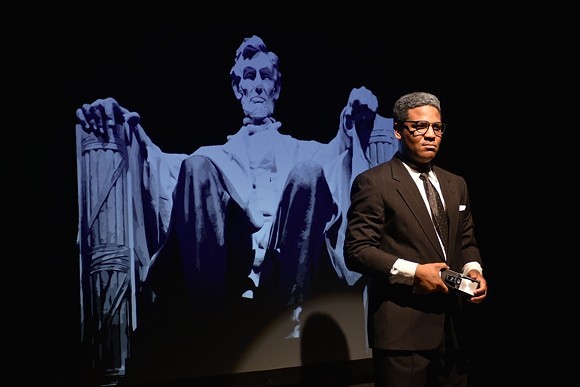

John Rone’s a first rate director with some experience bringing Jane Austen’s classics (as adapted by Jon Jory) to wordy life. Productions of Pride & Prejudice in 2008, and Emma in 2011 were long, literate affairs, lovely to look at and listen to. Like I wrote following the original P&P, “If devoting the best eighth of your day to a barrage of class- and gender-conscious barbs traded with restraint in a variety of picturesque settings sounds at all like a little slice of heaven, then the play will probably be a delightful experience. If it sounds like a hellish torture ingeniously conceived by your worst enemies, it’s probably that too.”
That’s no knock at the material or the work, which was very good. 
But, in my experience there are two kinds of people in the world: Those who live for 19th-Century authors, with a special affinity for Austen, and those who’d rather bathe in leaches. A say this as someone who trusts this creative team, and tends to be the former, with a slight preference for George Elliot’s more startling imagery. If it sounds like you, order tickets now (opening night has already sold out). If it doesn’t…
Rock of Ages, Haint, Blueprints to Freedom Close, Sense and Sensibility Opens. (2)
Maybe you’ll want to check out Rock of Ages, which, in spite of being a difficult, class-conscious romance, is about as far as you can get from Jane Austen. The story goes something like this: The economy is wrecked, city cores are crumbling, but it’s morning in America so foreign investors are snapping up property and transforming local flavor into upscale homogeneity. Into the scene walks Sherrie, a young girl from the heartland, in painted-on, cut-off jeans, dreaming of work on the silver screen, even while she works the pole in a gentleman’s club. A five-minute stand with a burnout rockstar in the men’s room of the Bourbon Room (a stand-in for the Whiskey a Go Go) has wrecked her chances for real love and brought her to a place she never thought she’d be. Now she’s holding out for a hero. It’s fun, vibrant work expertly executed by a great band, and a top-notch cast. Looks like they’re having the time of their lives.

If you’re in the mood for something a little more serious, Blueprints to Freedom is a timely ode to civil rights pioneer Bayard Rustin. Michael Benjamin Washington’s ambitious portrait of Civil Rights organizer Bayard Rustin, zeroes in on a singular moment in history. But what went down in the hot summer of 1963 didn’t stay in 1963. The historic march for jobs on Washington D.C. was attended by 250,000 people, creating magnificent ripples that still rock us today. The play is celebratory. But it’s also cool, conflict-ridden and circumspect. It shows Rustin, King’s mentor in the ways of nonviolent protest, in exile, but still the intellectual center of a coalitional movement grasping for unity. In the era of Black Lives Matter, Washington’s soul-searching history, also forces us to consider whether or not the “protest or politics” choice Rustin and union leader A. Philip Randolph present is a false dichotomy. As the late Judge D’Army Bailey often suggested, as an early advocate for the creation of a National Civil Rights museum, maybe activism is always in season.
To read more about Blueprints, here you go.
Rock of Ages, Haint, Blueprints to Freedom Close, Sense and Sensibility Opens.
For something just as timely, but far more irreverent, Hand to God delivers. The time: Now, more or less. The place: A Sunday school room somewhere in suburban Texas. The plot: Margery is working through grief and an evidently difficult past by teaching teens how to reject Satan with puppets. She’s a horny new widow doggedly pursued by a horny minister, engaged in a dangerous liaison with one of her horny young puppeteers, and emotionally ill-equipped to cope with her own horny, hurt, badly repressed, and clearly demon possessed teenager. Though sometimes compared to Avenue Q, because both shows contain foulmouthed puppets doing shocking things, Hand to God is more like a mashup of The Exorcist and King of the Hill, all under the influence of Meet the Feebles, Good stuff, dark as hell.

Looking for something a little more local? Justin Asher’s a Memphis playwright to watch and Haint‘s an entertaining example of what he does. Inspired by rural legends about a woman who wanders the roadsides looking for her lost son, Haint tells the story of Mercy Seer, a caustic medicine woman who whips up weed-and-seed home remedies, hangs jars full of memories on trees, and occasionally pretends to talk to spirits for the townsfolk in order to pick up a few extra bucks. She lives in a ramshackle old house on the edge of town with her son Charley, who dies midway through the show, but never goes away. Worth checking out.
Also on stage this week: Hamlet.
I haven’t seen the New Moon Theatre Company’s take on Shakespeare’s masterpiece, but I’ve seen the director play every single character in the show and trust it to be in very good hands. The cast is solid, and it looks fantastic.
